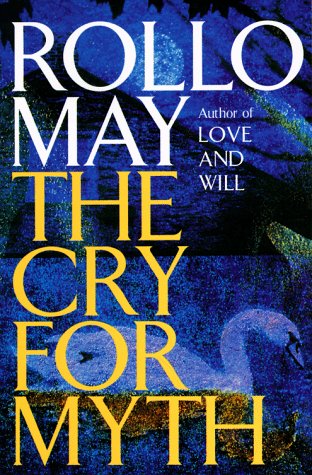Review of The Cry for Myth
Book Info

Reading History
I've read this book once. My last read was November 1, 2019 to November 11, 2019.
Review
OK, so this was amazing. I totally enjoyed reading this. It both opened my eyes to myths or stories of our times (or shall we say more modern than what I associate as myths say of Greece and Rome) and helped put into perspective why myths and stories are so fascinating and important to me.
It also echos a thought of mine from a few years ago that one reason things aren’t so great these days is that Star Trek has died, or really the underlying thought there is the dream of really getting out there and moving humanity into the stars has, if not died, fallen into obscurity. We don’t have any unifying vision or dream, a wish pushing us forward. Star Trek wasn’t the only representation of that dream, but I’d say it was one of the most mythical and optimistic ones.
Unlike his earlier book Love and Will, this was not so academic and unrelatable. While I wasn’t initially familiar with all the stories or myths that he discusses, he explains them well enough that you don’t need to be. After finishing this up, I have a renewed interest in following up on reading some classics and other stories of our time. It also had me look at some of the classics I had read when I was younger in a different light. When I read some of these in HS and college freshman english class, I just wasn’t wise enough to appreciate the deeper cultural and moral/guiding ideas below the surface plot of the story.
One thing that I do find a little disappointing is that the stories are very white, euro-centric, and male. He does bring in Briar Rose as a more feminine myth, but it’s one example, specifically focused around coming of age and woman-hood. On some level I get the reasons for this, but obviously that really leaves a lot of the population out. Given that the book is more about showing that myths are important to us as a culture, rather than being a catalog of myths, I find this forgivable.